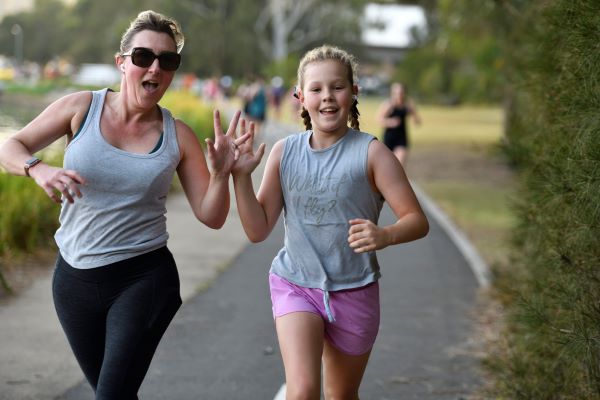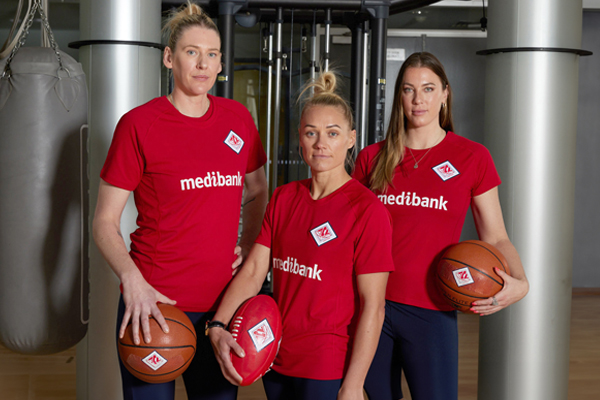-
Download your training guide here
If you’re feeling pretty good running 10 km and now you want to take it to the next level, this is the training guide for you. Over 8 weeks, you’ll build up your speed, strength and endurance to reach your personal best.
Training days explained
Run: This refers to running at a comfortable pace – you define this. The key is that you cover the distance.
Speed sessions: To race at a fast pace, you need to train at a fast pace. Interval training, where you alternate fast running with jogging or walking, is a very effective form of speedwork. This starts in week 1 with a workout of 6 x 400 m and peaks in week 7 with 12 x 400 m. Run the 400 m at about medium intensity.
Tempo run: This training technique involves continuous runs with an easy beginning, a build up in the middle, then ease back and cruise to the finish. A typical tempo run begins with 5-10 minutes easy running, continues with 10-15 faster running, and finishes with 5-10 minutes cooling down.
Rest: Rest days are almost as important as training days and provide an opportunity for you to recover and your muscles to build in strength. This training guide includes one rest day. The easy 5 km run scheduled for Monday is also designed to help you rest for harder workouts on other days. The final week before the 10 km race is a rest week. Taper your training so you can be in peak performance on race day.
Warm-up: This is especially important before your speed workouts. A good warm-up is to jog 1-2 km, sit down and stretch for 5-10 minutes, then run some easy strides (100 m at near race pace). Cool down afterwards by doing half of the warm-up.
Stretch + strengthen: Stretching is key to a strong, supple body and should be done daily. Strength training, particularly for your core muscles, is an important focus of this training guide. Try bodyweight-based activities like push-ups, chin-ups or dips, or light weights with high reps at your local gym.
Pace: This is your race pace, or the speed at which you aim to run your 10 km race in. Like the tempo runs, you want to start and finish easy. This guide outlines total distance of the run plus the approximate distance that should be run at race pace.
Test: This training guide includes opportunities to check in on how you are tracking with two test runs – one 5 km test and one 8 km test.
Long runs: This program suggests a slight increase in the distance of your long runs as you get closer to race date – from 10 km to 16 km. Run at a comfortable pace and enjoy these runs. The aim is to get your legs comfortable with the distance and help build endurance. Mix these up with different runs and even find local trail runs if suitable.
10 km Training Guide (Advanced – 8 Weeks)

-
Everything you need to know about parkrun
Been wondering what a parkrun looks like? Where do you go? What do you do? How do you sign up? Find out here.
-
Five ways to exercise when on a budget
You don’t need to spend money on gym memberships just to meet your fitness goals. Here are five free ways to stay healthy and active when you’re living on a budget.
-
How parkrun changed my life
Christie Farrow went from being an exercise-phobe to a true blue runner with parkrun.
-
Australia's top female athletes unite on ACL injury
Some of Australia's most talented athletes have joined forces to highlight the unique injury challenges women face.
-
How to create your perfect summer fitness plan
Be inspired by the sunshine and get moving
-
The essential foam rolling routine
Improve posture and flexibility with this essential foam rolling routine. Discover effective stretches to ease muscle tightness and enhance your daily movement.
Subscribe to receive the best from Live Better every week. Healthy recipes, exercise tips and activities, offers and promotions – everything to help you eat, move and feel better.
By clicking sign up I understand and agree to Medibank's privacy policy






